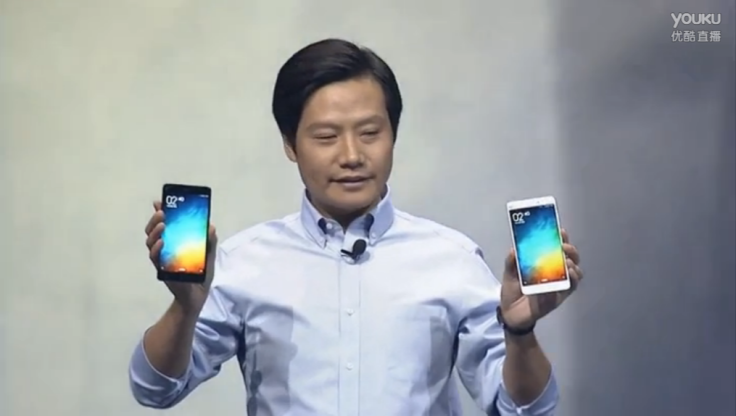Xiaomi: "We want to be the biggest phone company in the world"
Mi Note Pro launched as 2015 flagship device

Xiaomi is certainly no shrinking violet and during the launch of its flagship model for 2015, its CEO Lei Jun openly declared the company's ambition to become the "biggest phone company in the world".
Jun has just launched the company's flagship product for 2015, the large-screen Mi Note, directly comparing the smartphone to the iPhone 6 Plus, adding that it was thinner and lighter than Apple's product despite having a slightly larger 5.7in screen.
Xiaomi is a company which shot to fame in 2014 taking the position as the world's third largest smartphone manufacturer in the third quarter of the year, while also usurping Samsung to become China's biggest smartphone brand.
The company sold 61 million smartphones in 2014, up from just 18.7 million the previous year, and if that type of growth continues, then Jun's ambitious statement may not seem so ludicrous.
Add to this the fact Xiaomi still only sells its smartphones in China and a handful of other Asian countries like Singapore and India, and the potential for growth is huge.
Samsung is still the world's biggest smartphone maker by some distance, with Apple sitting in second place. However Samsung has had a turbulent six months with profits from mobile sales sliding dramatically and the company coming under pressure at all ends of the smartphone spectrum.
At the high end Apple's iPhone 6 and iPhone Plus have impacted sales of Samsung's Galaxy S5 and Galaxy Note 4 flagship models significantly, while at the low end it is companies just like Xiaomi which are eroding Samsung's traditionally strong offering.
Xiaomi is expected to expand into more countries in 2015 and has just secured a massive $1 billion investment last month to help global expansion - valuing the four-year-old company at $45bn.
While Xiaomi is likely to continue to grow significantly in the short term, it remains unclear if the company's business model will work in more developed western markets. The company relies heavily on the devotion of its fans to help spread the word about Xiaomi, with most sales carried out directly through the company's website.
This approach means it doesn't spend much on advertising and doesn't have to deal with carriers and retailers - something which is unlikely to work in the heavily developed markets in the US and UK.
© Copyright IBTimes 2024. All rights reserved.






